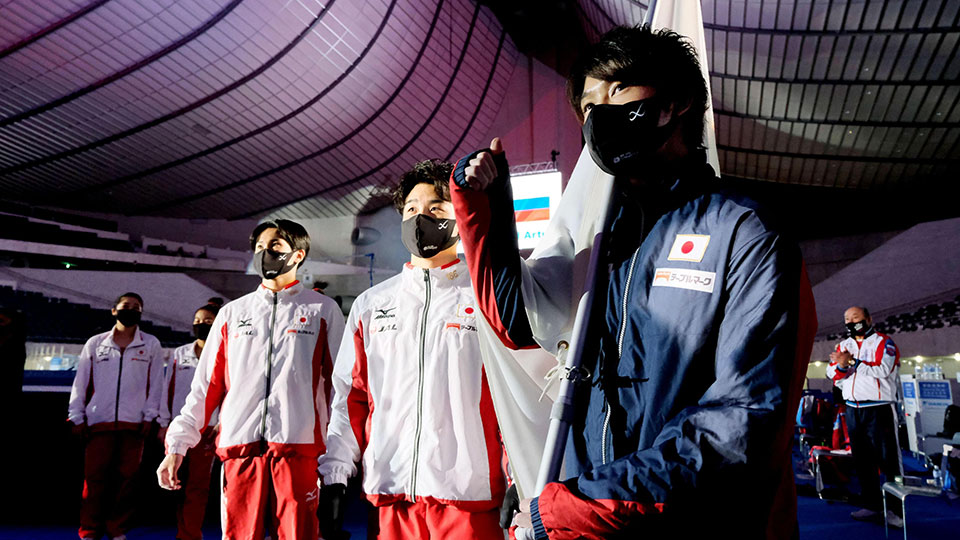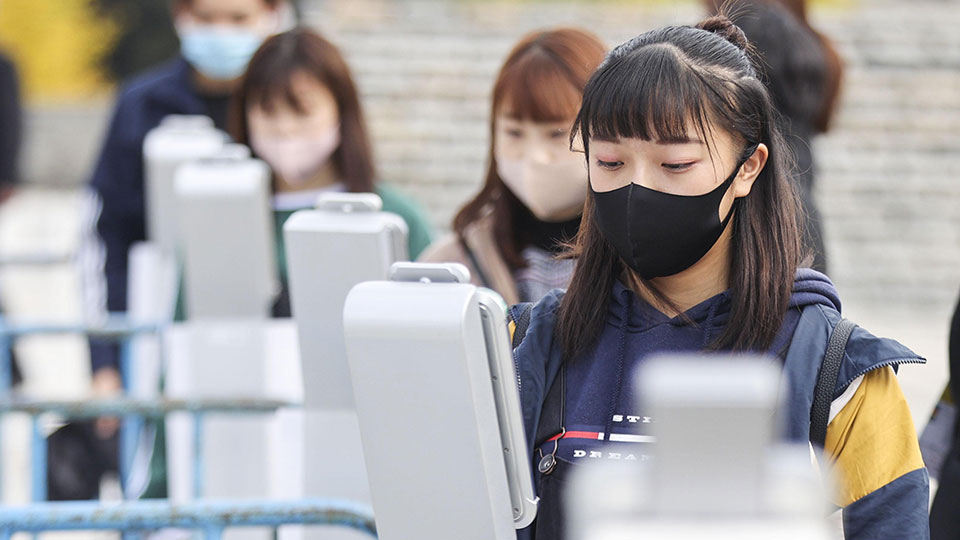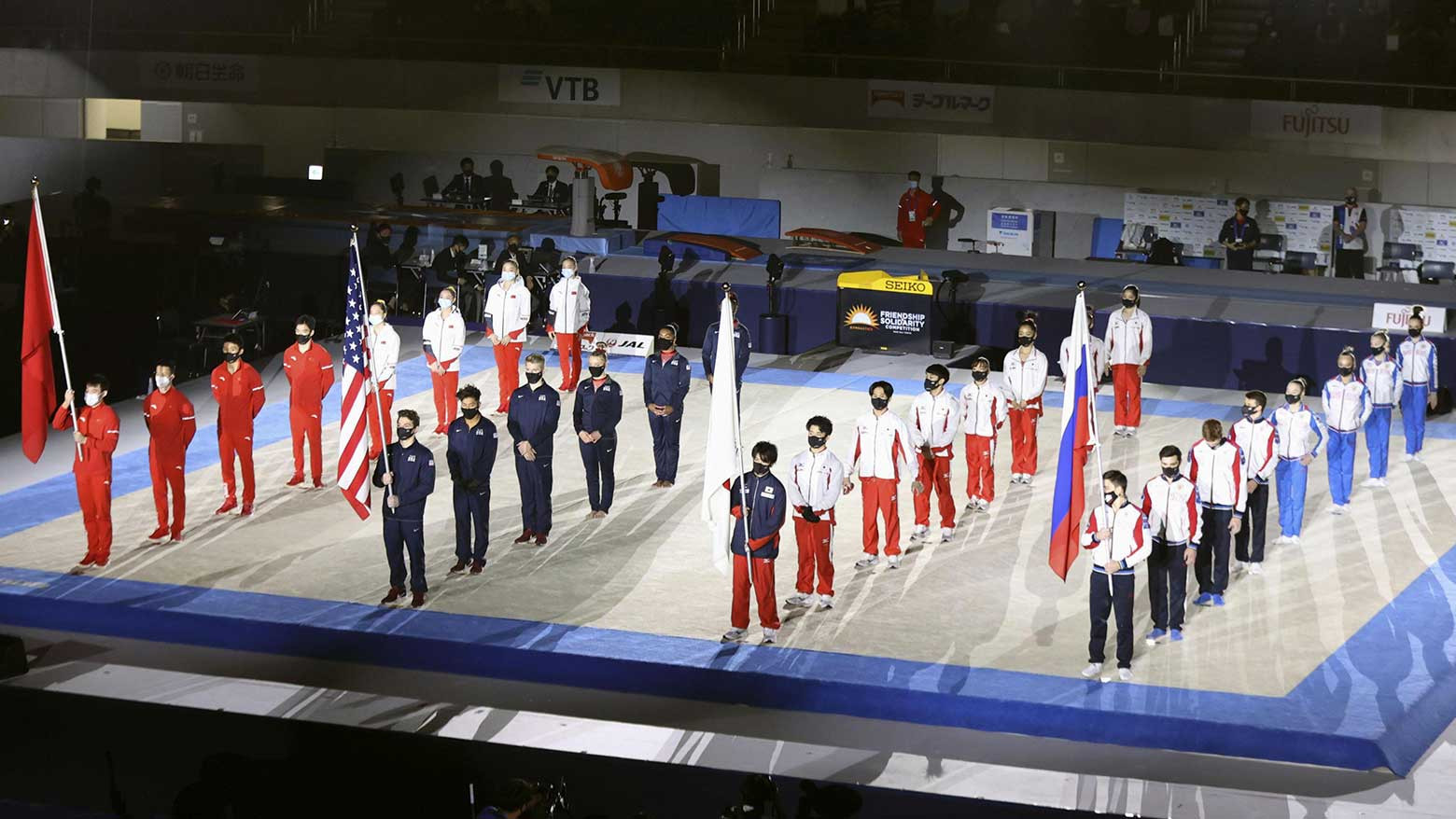A total of 30 gymnasts from Japan, the US, Russia, and China took part in the Friendship and Solidarity Competition held at Tokyo’s Yoyogi National Gymnasium on November 8. The organizer, the International Gymnastics Federation, says the event provided an opportunity ahead of next year’s Olympics to test out infection prevention measures that minimized the burden on competitors.
Exempt from quarantine
Athletes were exempt from the two-week quarantine usually required upon entry to Japan. Instead, they had to self-isolate for about two weeks and take multiple PCR tests before leaving their home countries. They were required to submit photos to prove they were administering the tests, and videos that showed they were training in a safe environment with adequate anti-infection measures in place.
The teams traveled to Japan on chartered flights. The athletes from China seemed to be taking no chances, arriving in full protective gear. The cabin crew on their flight say none of them ate in-flight meals or went to the bathroom during their three-and-a-half-hour journey.
Upon arrival, the athletes were escorted to a special area set up exclusively for the competition. There they underwent lengthy entry screening procedures. For the Russian team, the process took nearly two hours to complete, and many of the athletes, exhausted after a ten-hour flight, laid down on the airport floor while waiting.

Strict restrictions
After entering the country, the gymnasts had to isolate in their hotel rooms. Even their movements inside the building were restricted to the floor where their team was staying and the dining area. The teams ate separately and the athletes were not allowed to sit facing each other and talk.
Russia’s Nikita Nagornyy, winner of the men’s all-around competition at last year’s world championships, had never been to Tokyo before the event. He says he was slightly disappointed that he was unable to go out and see the city, though he understood the need for the measures.
“Tokyo is such a nice place,” he said, “but I can’t even go outside. How crazy!”
Since he wasn’t allowed to use the hotel’s gym or swimming pool, Nagornyy was forced to train in his room. He maintained fitness by shadowboxing, and used the bathroom as a sauna.
“If the Olympics do take place, I hope to see some improvements in terms of accommodation for the athletes,” he said.
The athletes were also forced to take daily PCR tests before breakfast.
“They are suffering from nasal inflammation because they have been tested so many times,” an interpreter for the Chinese team said. “Is it possible to change the testing method?”
“The unusual must become the usual”
Attendance for the event itself was limited to around 2,000, just one-sixth of the venue’s total capacity. Before entering, every spectator had their temperatures taken and had to sterilize their hands.
As for the actual competition, there were a number of notable changes. Equipment was sterilized after every performance. Air purifiers were installed in the areas where the athletes wait ahead of their turns. And the event organizer prepared individual portions of the chalk powder competitors use for grip. This is usually shared by all athletes.

Despite the differences, the meet ended without any problems, and there have been no infections reported in the days since. For the IOC, the event was a success.
“We’ve finally moved half a step toward the Tokyo Games,” says Watanabe Morinari, president of the International Gymnastics Federation.
For Bach, the event appears to have hardened his commitment to next summer’s Olympics. After meeting with Prime Minister Suga Yoshihide on November 16, he expressed his resolve to ensure the Games will be a success.
“We again will make this Olympic Games a great symbol of solidarity and unity of humanity in this world, which by then hopefully will be a post-coronavirus world,” Bach said. He added that he hoped the Olympic flame could be the “light at the end of the tunnel” the world is now in.
But some of the gymnasts who took part in the event still feel there are many challenges ahead.
“Unusual things must now be done as if they were the usual,” Japanese ace Uchimura Kohei told NHK after the meet. “And if that’s not possible, the Olympics can’t take place.”

